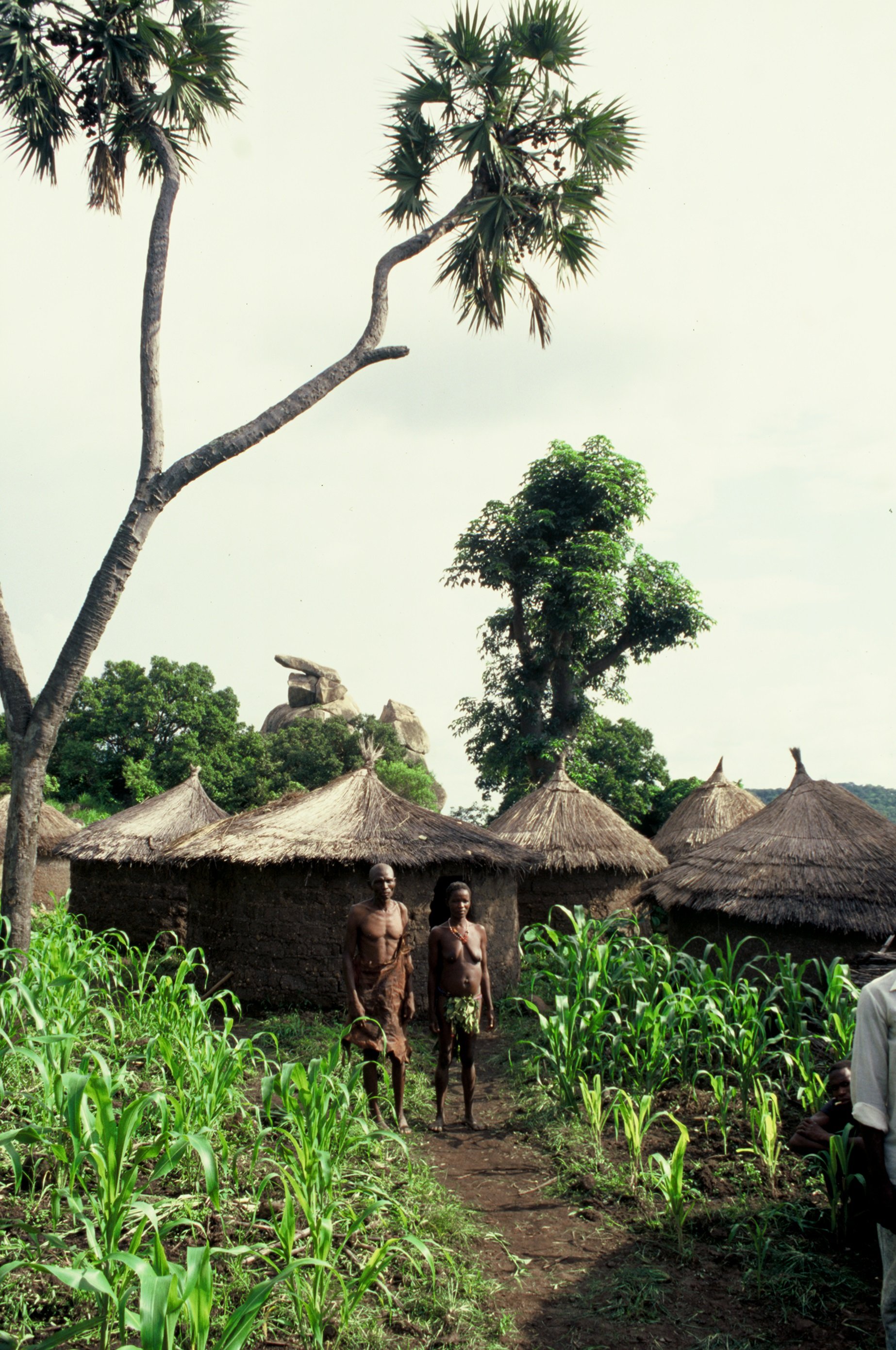The Achipawa of Nigeria: "Hostile Animists"
In the hut of a Nigerian pastor named Leo was a trove of documents from the past, sermons, diaries, notes about local tribes. Leo welcomed Ofir to read through them. Then he found a document listing the percentages of Christians and Muslims in various tribes. More than a hundred tribes were listed, all with the percentage of converts. Flipping through the pages, he spotted the lone gap in the data. Just one tribe had no numbers beside it, no Christians or Muslims. Instead were the words, “Hostile Animists.” The tribe was the Achipawa. It would take Ofir more than a year to find them. The first photo is of Pastor Leo in his church in Nigeria.
The author of the report citing the Achipawa as “hostile animists” was brother Niyi Gbade. Ofir’s hope of finding the Achipawa lay in finding this man. Three weeks into following Niyi’s trail across Nigeria, Ofir was in a bus that flew off the road and rolled down a cliff. Cut by glass across the neck, arm, and legs, Ofir barely survived. The photo is with the doctor who saved his life in a bush clinic that operated without running water and often without electricity. Ofir’s head leans to the right because of the injury to the muscles of his neck, visible under his beard.
A year after beginning his search for Niyi Gbade, Ofir finally found the man in Lagos. Niyi was hesitant to share information about the Achipawa out of worry that Ofir would encourage them to protect their traditional beliefs, which might thus strengthen their resistance to Christianity. Niyi told him their aims were in competition. Ofir pointed to his scars and said he’d nearly been killed trying to meet Niyi, who then said, “I will tell you only that they are located between the Niger and Kebbi states.” Armed with this information, Ofir returned to Leo’s hut in the bush. After many days of walking, they found an elder who had been to those states, a man who said, “If you reach the mountain of the Achipawa you will meet a man who when he speaks you will hear thunder.” The elder is pictured below with his homemade gun.
“You will hear thunder,” the old man said.
The man gave Ofir a rough location of where to go. In a frontier town, Ofir met Brother Bulus Demena, who’d tried to build a church in the territory of the Achipawa and was driven out. He told Ofir, “They are guarding their chief called god. No one enters. He is their god…They will not let you in. Don’t go there.” As is the custom in Nigeria, Brother Bulus welcomed Ofir to his house and surrounded him with enough pots of food to feed a family of five. On the wall behind Ofir is a Year 2000 Doomsday poster, which delineates those going to heaven and those not. People drinking in bars, playing soccer, and practicing karate are not going up.
Brother Bulus Demena doing right by the tradition of caring for strangers.
In the remote north of Nigeria, Ofir bought a billy goat and rode in the back of a pickup toward the Achipawa, searching for the man he’d learned was the first Achipawa Christian, Timothy, who lived on the edge of Achipawa territory and who could speak English. Several days on, he and Timothy began to climb the volcano on which the Achipawa live. The two boys pictured were working seven years in the fields of their future father-in-laws, strangely echoing Jacob in Genesis. The Achipawa are animists.
Achipawa boys
An Achipawa Village
Ofir did meet the god of the Achipawa, a man said to control all the storms and all the births in Nigeria. And for most of his life he does not venture outside his dark hut. The full story is in the book, which is about Ofir’s transformation from adventurer to activist.








